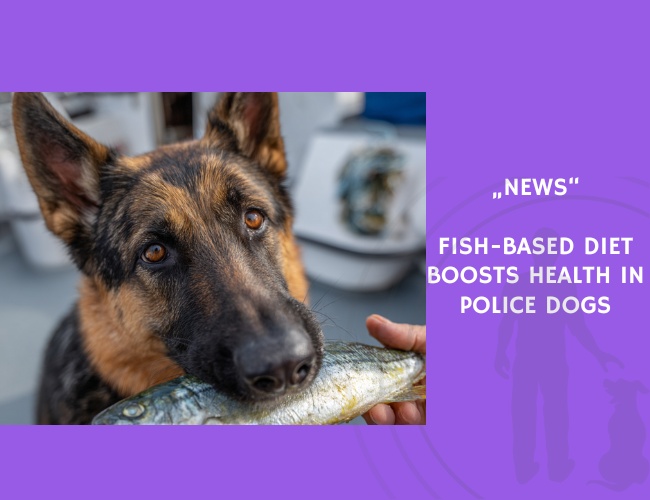Police dogs undergo physically demanding training and daily tasks that place high stress on their bodies, often leading to oxidative stress and lipid imbalance. In a study published in Biomolecules, Ravić and colleagues (2022) examined how fish-based diets enriched with marine oils influence lipid and oxidative status in working dogs.
The research evaluated bioactive lipids, including phospholipids and fatty acids in plasma and erythrocytes, along with metabolic and oxidative markers. Using GC chromatography, the study found that dietary enrichment with marine fish oils led to significant reductions in blood glucose, total cholesterol, and LDL cholesterol, while enhancing beneficial fatty acid incorporation into cell membranes.
Importantly, the supplementation reduced lipid peroxidation markers, an indicator of oxidative stress, suggesting protective effects against cellular damage caused by intensive exercise. Both plasma and erythrocyte lipid compositions reflected omega-3 intake, reinforcing their value as biomarkers for dietary monitoring in dogs.
The results underline that marine-based diets enhance oxidative resilience and support cardiovascular and cellular health in police dogs exposed to high physical demands. This approach not only improves performance but also safeguards long-term well-being, offering practical insights for the nutrition of working dogs and other active canines.
Source: Ravić, B., Debeljak-Martačić, J., Pokimica, B., Vidović, N., Ranković, S., Glibetić, M., Stepanović, P., & Popović, T. (2022). The Effect of Fish Oil-Based Foods on Lipid and Oxidative Status Parameters in Police Dogs. Biomolecules, 12. Published August 1, 2022.










